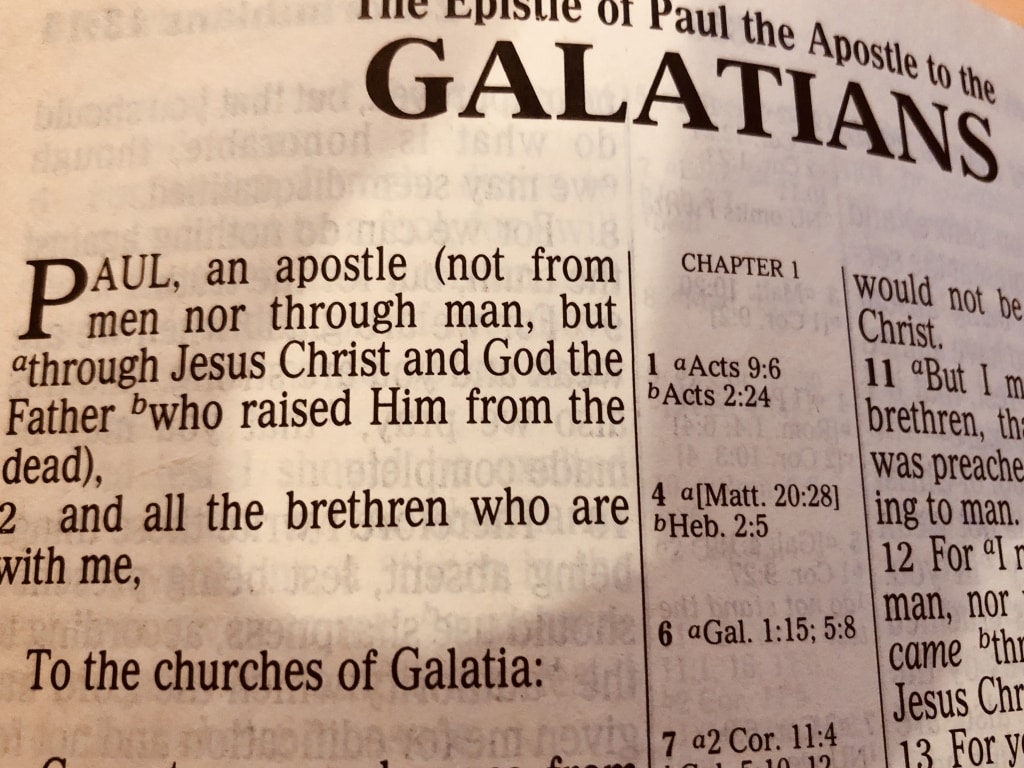
INTRODUCTION
Paul had first preached the Gospel to the Galatians on his first missionary journey with Barnabas, in the cities of Pisidian Antioch, Iconium, Lystra, and Derbe (Acts 13:13–14:31). These cities were the scene of some of Paul’s greatest persecution, and on his second missionary journey, he met Timothy in Lystra (Acts 16:1–3; 2 Tim. 3:10–12). The Gauls, also called Galitai, or Keltoi (Celts), migrated, according to some out of France, but others claim out of central Asia, into what we know as Galatia. This area is located in modern Turkey. They later moved northwest into what is today Britain, Ireland, and Scotland.
The letter to the Galatians is the most aggressive and combative of all of Paul’s epistles. This is because Paul was under a three-pronged attack from the Judaizers: His apostleship, his gospel message, and his conduct were all being challenged. Paul responds like the fighter he was—he counter-attacked.
In this epistle, Paul responds to the heresy of the Judaizers who challenged:
- His ministry (Apostle to the Gentiles—Gal. 1:1; 2:7),
- His message (the gospel of the grace of God—Gal. 1:6-9; 2:14-16; 3:1-9,11,22-26; 5:1,13), and
- His method (they accused him of being a “men-pleaser,” Gal. 1:10; see 1 Cor. 9:19-23).
In the minds of these zealots, no one could be saved apart from becoming a proselyte to Judaism through circumcision, and total dedication to the Law of Moses (Acts 15:1–5).
Paul’s shift from “The gospel of the kingdom” to the “gospel of the grace of God” shook the religious world of his day because they did not yet understand the Doctrine of the Mystery, or the great dispensational shift from the Age of Israel to the Church Age.
This letter was probably written from Antioch shortly after Paul’s first missionary journey (Acts 13-14). The same Judaizers who had come to Antioch and disputed with Paul (Acts 15:1-5), had followed him and sought to pervert his message in Galatia. The Galatian letter has many similarities in its emphasis with the epistle to the Romans.
Three Descriptions of the Galatians’ Defection
The phrase “turning away” in Galatians 1:6 speaks of a gradual and continual moving away from the truth of justification by faith alone in Jesus Christ alone, apart from works.
- It was a defection from Christ, the Living Truth, to a lie (Gal 1:1-9).
- It was a defection from the Spirit of God back to the Law (Gal 3:1-9). This was essentially a rejection of the New Covenant in favor of the Old Covenant:
- Rejection of new wine in favor of the old,
- Attempt to put new wine in old wineskins, and
- Desire to perpetuate what God had abrogated (Heb. 7:18, 22; 8:6-7, 13; 9:15; 10:9).
- It was a defection from freedom in Christ to spiritual slavery (Gal 5:1-6).

